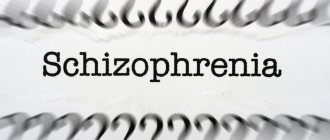Types of psychoses
The causes of psychosis directly affect its classification. So, the following types of mental disorders are distinguished:
- endogenous phenomena - arise due to the influence of bipolar disorders, depressive factors, neuroendocrine phenomena on a person;
- exogenous phenomena - occur under the influence of various external factors, as well as due to the use of narcotic drugs, severe stress;
- organic phenomena - occur as a result of somatic pathologies, for example, myocardial infarction, head injuries and infectious diseases.
The division can be called conditional, since sometimes the occurrence of psychosis is influenced by several factors at once. As a result, a person faces serious mental disorders that lead to various problems.
Mania
The following clinical signs are characteristic:
- excited state;
- constant, often completely inappropriate emotional upsurge;
- motor excitement;
- talkativeness;
- irritability and anger;
- sleep disturbances, and the patient does not experience fatigue even after a short rest;
- increased appetite;
- increased sexuality, promiscuity in sexual relations.
But against the background of a general physical and emotional upsurge, they pay attention to absent-mindedness and impatience. Patients are full of plans, but extremely rarely implement them to the end, being distracted by something else. Delicacy and tactfulness are lost in communication.
Due to inadequately high self-esteem, patients are very jealous of the results of their activities, cannot tolerate criticism at all, and react very aggressively to any comments.
Main symptoms
The disease manifests itself with various symptoms that need to be addressed promptly:
- hallucinations: a person talks with invisible interlocutors, listens to something, abruptly ends the conversation. Visual and olfactory hallucinations may also occur, because it all depends on the characteristics of the problem;
- nonsense: a person turns off critical thinking, so it is useless to explain or prove anything to him. He will be jealous, cause harm, talk to imaginary interlocutors;
- emotional disorders: the ability to express emotions suffers, because the person will not understand what exactly he is doing;
- changes in character: a person becomes nervous, overly emotional, refuses to eat and does not sleep;
- changes in sensations: mood constantly changes, unreasonable fears appear;
- changes in behavior and performance: a person becomes distrustful, refuses to make contact, is inattentive, and prone to stressful situations;
- changes in perception: the perception of sounds and shades is distorted.
If you notice symptoms of psychosis in yourself or your loved ones, contact a professional immediately. They will provide first aid and engage in further treatment of the patient using the best programs and methods.
Clinical manifestations
The main features are affective states, manifested in the following phases:
- depressed;
- manic;
- mixed.
Symptoms of the disease arise either spontaneously, or (which happens more often) under the influence of some external causes. The seasonal nature of exacerbations is also typical.
According to the type of course, female psychoses can be:
- periodic with a clear change of exacerbation and remission;
- double, triple, etc., when within one cycle of a psychotic disorder, attacks and remissions replace each other 2–4 times in a row;
- continuous, in which the patient’s condition practically does not improve;
- single-attack: after a single episode of exacerbation, a long-term remission occurs, while there may not be a second attack (this form of the disease is diagnosed quite rarely and usually by chance when taking an anamnesis);
- protracted: the acute period lasts a long time - for 1-2 years (a similar clinical picture is typical for depression).
How is psychosis treated?
It should be noted that it is impossible to cure psychosis at home. You should not take medications without specialist supervision. To determine the cause of the problem, you will need the help of a qualified professional.
If you or your loved one is faced with a similar problem, contact medical centers. There are doctors who will not only determine the cause of the problem, but also prescribe the optimal treatment method. After some time, the person will return to normal life again, because his mental health will be restored.
Good news
A new antipsychotic for the maintenance treatment of schizophrenia from the Janssen company, part of the Johnson & Johnson pharmaceutical division, Trevicta, has been registered in Russia. It has a long-lasting effect and can be used only 4 times a year, that is, every three months, which is much better than monthly injections of long-standing antipsychotics.
Trevicta is now an antipsychotic with the longest dosing interval registered in our country. It maintains its optimal concentration of paliperidone in the patient’s blood for a long time, which is why it requires such rare use.
Prescribe three months of Trevicta to patients with a stable condition after treatment with other drugs. It helps reduce the risk of relapse due to its prolonged action, has a low risk of side effects, and does not create withdrawal syndrome if treatment is abruptly stopped. This makes it possible for a patient with schizophrenia to socialize and maintain his constant normal state.
Treatment of psychosis
So, as mentioned above, you cannot cope with the disease at home. You need to contact specialists who will develop treatment methods. They will depend on what kind of disease the person is facing.
Treatment of alcoholic psychosis
Alcoholic psychosis is a severe mental disorder that is caused by drinking alcohol for a long time. To save a loved one, you need to pay attention to the following symptoms:
- sadness;
- unreasonable fears;
- hallucinations;
- sedentary lifestyle;
- depression.
To promptly help a person return to normal life, contact professionals. They will carry out treatment according to all established rules.
Treatment of alcoholic psychosis involves cleansing the body of toxic substances. After detoxification, the person is placed in a rehabilitation clinic, where psychologists regularly work with him. They eliminate the underlying causes of the disease and also cope with its symptoms. Under the supervision of specialists, the risk of relapse is completely eliminated.
Disintegrative psychosis
This name is given to a heterogeneous group of conditions that occurs in most situations in children aged three to four years. With the onset of the disease in a short time, prodromal symptoms are lost in a not so long ago completely healthy baby. He loses his speech and understanding skills. Treatment of disintegrative psychosis improves the quality of life of a young patient.
Development of pathology
The onset of disintegrative psychosis can be almost invisible. The child's motor behavior gradually begins to decline. Hyperactivity develops. As it develops in a short time, the symptoms increase. Gradually all acquired skills and abilities disappear. In medical practice, this pathology often occurs when a child is diagnosed with autism.
When diagnosed, the loss of at least two of the skills acquired in the first years of life is highlighted. These include:
- speech skills;
- ability and desire to support the game;
- performing social skills;
- control of bladder and bowel movements.
In some cases, young patients lose all 4 previously acquired skills. In such a situation, doctors will diagnose, according to the international classification, “basic loss of interest in objects and the surrounding world.” This pathology is also often called childhood dementia. This syndrome was first described in 1909 by a doctor from Germany, Geller.
Childhood dementia is irreversible and progresses rapidly. Despite research, today the causes of the disease have not been established. The possibility of the presence of an organic nature of the onset of pathology is considered. At the same time, doctors talk about identifying severe stressful situations in children with childhood dementia.
Treatment options
Childhood dementia, which is disintegrative psychosis, cannot be cured or at least stopped with modern methods. Contacting specialized clinics helps develop a course of therapy that maintains a high quality of life for a small patient suffering from infantile dementia. The development forecast is negative. Within a period of one to several years, the stage of deep dementia is diagnosed. Most patients remain with severe mental retardation for the remaining years of their lives.
The course of therapeutic therapy includes the treatment of neurological and mental disorders, and the activities of social services that provide support. A big role is given to the social adaptation of family members of a small patient suffering from an incurable disease.
Treatment of manic psychosis
Manic psychosis is a serious personality disorder that is accompanied by sudden changes in mood, excessive physical activity, and increased activity. But, at the same time, a person is prone to depression. He suddenly withdraws into himself, refusing to make contact.
Treatment of manic psychosis is a complex process consisting of many steps. The patient needs special medications, which are prescribed by the attending physician. In addition, he must regularly visit a psychologist to restore his psychological health. Classes can be either individual or group.
Treatment of depressive psychosis
Depressive psychosis occurs due to a prolonged stressful situation that causes negative emotions. This condition is dangerous because a person can behave aggressively and unpredictably. You need to contact specialists in a timely manner to avoid problems.
Treatment of depressive psychosis is carried out in a hospital setting. The patient is regularly looked after by professionals who monitor his condition. Work with a psychologist is carried out every day, because you need to eliminate the trouble and the causes of its occurrence.
Treatment of acute psychosis
Acute psychosis is a mental disorder that is accompanied by disturbances in social adaptation. A person suffers from sudden mood changes, unexpected attacks of aggression, and other problems.
Treatment of acute psychosis is mandatory with hospitalization of the patient. This is due to the fact that he is not able to control his own actions, so he can harm the people around him. Medicines are selected only on an individual basis by a specialist, because self-medication is strictly prohibited. In addition, a psychologist should regularly work with a person to convince him that only the best is wished for him. Remember that a sudden change in environment can cause a psychological breakdown.
Treatment of schizophrenic psychosis
Dangerous schizophrenic psychosis is accompanied by extremely unpleasant symptoms. Often a person withdraws into himself, refusing to communicate with people around him. He also experiences sudden mood changes. He can laugh and then burst into tears a minute later.
Treatment of schizophrenic psychosis is determined individually for each patient. The technique depends on how acute the problem is. Usually this means medications and work with a psychologist. Thanks to regular monitoring by specialists, relapses are excluded, and the patient gradually restores his mental health.
Treatment of schizotypal psychosis
Schizotypal psychosis is a disorder characterized by strange reasoning and beliefs, a lack of emotion, and unclear reactions to events. Experienced specialists are engaged in diagnosing such problems and eliminating them. The occurrence of such diseases is influenced by hereditary factors and biochemistry. It is impossible to protect yourself from them if you are prone to developing them.
Treatment of schizotypal psychosis is carried out in a hospital setting. In case of trouble, you need to use special medications. In addition, regular work with a psychologist is necessary. A professional will definitely select those treatment methods that are suitable for a person in a particular situation.
Treatment of schizophreniform psychosis
A similar problem is also often encountered among the population of our country. Every fifth person encounters it. The disease is characterized by sudden changes in mood and an unstable emotional state. The person needs immediate help as he or she may experience prolonged depression.
Treatment of schizophreniform psychosis is a complex and responsible process that requires the intervention of a specialist. Professionals prescribe appropriate medications and regularly work with patients to restore their mental health. It is important to eliminate the cause of the development of mental health problems, because otherwise relapses in the future are not excluded.
Treatment of reactive psychosis
Reactive psychosis is a mental disorder that can occur after mental trauma and severe shock. The symptoms and course of the disorder depend on the individual and the specific characteristics of the injury.
Treatment of this problem is carried out in a hospital. The patient is prescribed special remedies that make it possible to eliminate the problem. It is also necessary to involve psychotherapy.
It is imperative to eliminate the psychogenic situation in order to cope with a mental disorder. If this is not done, the situation will worsen. The disease will become more acute, which will lead to problems and unpleasant consequences. Therapeutic tactics are selected depending on the characteristics of the current situation.
Treatment of vascular psychosis
Vascular psychosis is a problem that is extremely common in our time. It manifests itself in constant headaches, sudden jumps in blood pressure and changes in health for the worse. Such a disorder causes a lot of discomfort to a person.
The main part of therapeutic measures is the elimination of the disease, which is somatic in nature. A professional should prescribe psychotropic medications based on the specific characteristics of the mental disorder. It is also necessary to use tranquilizers, which have a complex effect on the body.
Neuroleptics are prescribed to patients in minimal dosages. To cope with anxiety and fears, you should use antidepressants. Only in this case, confusion of consciousness is completely excluded.
Treatment of senile psychoses
Senile psychosis is a disease that manifests itself after sixty years of age. It manifests itself in disorders of various types, so its symptoms are similar to endogenous mental illnesses. It should be noted that such a diagnosis is characterized by senile dementia.
Old people suffer from memory loss because their concentration is impaired. They may not remember exactly what they did a few minutes ago. The relative needs to be patient, because sometimes old people show sudden aggression and behave incomprehensibly. Do not be nervous, because this condition is transmitted to the elderly person, who also begins to worry.
An individual type of treatment is selected for each patient. The characteristics of the psychosomatic state play an important role. The course of therapy is carried out under regular supervision of a specialist. The acute form of the disease is considered more favorable for cure. If the course of the disease is long-term, then you will be able to simply cope with the symptoms, but you will not be able to get rid of them completely. The patient’s relatives must learn to behave with a sick person, putting up with his attacks, since no one is immune from such problems.
Treatment of childhood psychosis
Childhood psychosis is a phenomenon that is quite rare. Usually its causes are problems in the family, which negatively affect the mental state of the baby. Children who grow up in dysfunctional families are especially susceptible to such problems. Their psyche is regularly exposed to negative influences that destroy moral health.
Episodic attacks of psychosis subside when the underlying illness disappears. If a child has suffered a severe episode of psychosis, he will need professional help. In the most difficult situations, children need to be sent to a clinic for rehabilitation. Typically, therapy is selected taking into account the main features of the disease.
If a child has experienced a psychotic breakdown due to a stressful situation, then he will definitely need short or long-term help from a psychotherapist. In complex and advanced situations, it is necessary to treat the child using special medications. If the child's behavior is very aggressive, then he is prescribed tranquilizers.
Treating psychosis at home
Only qualified specialists can determine by what rules psychosis is treated at home. However, there are general tips that should be followed if your relative suffers from such a problem. As soon as you notice the symptoms described above, start taking action:
- if a person begins to mention that he will commit suicide, or begins to show aggression towards you, immediately call an ambulance to prevent negative consequences;
- never try to argue with a patient, because he does not understand what he is saying, and opposition on your part can lead to unpredictable results;
- always silently listen to crazy ideas without entering into dialogue with the person, as this will not end in anything good.
Do not forget that psychosis is expressed in different moments. Most often it is depressive or manic in nature. That is why the treatment regimen is selected depending on the specific situation. For example, in the first case, you cannot give a person antidepressants. But if he is faced with manic psychosis, then it is simply impossible to do without such drugs. If you do not want to expose your loved one to risks, then it is better to seek help from qualified professionals who better understand such mental health problems.
Drugs to treat psychosis
The main medications for treating psychosis are neuroleptics or antipsychotics. The first type of medicine was developed many years ago. They stop psychosis, preventing the problem from developing further. But patients noted the occurrence of a variety of unpleasant side effects. That is why the drugs began to be used less and less in practice.
Atypical antipsychotics are a real breakthrough in the world of treating people with psychosis. The drugs act only on certain nerve receptors, so a negative effect on the body is excluded. With their help, you can cope with psychoses of various types, regardless of the degree of complexity of the disease.
Only a specialist who develops an individual treatment regimen for each patient can prescribe atypical antipsychotics. You need to immediately contact a professional if your loved one or you yourself are faced with similar troubles. Usually the course of treatment lasts for several months, but in some situations it can last for several years.
Psychotrauma
How exactly a woman reacts to traumatic situations is determined by her character, life principles, social and financial status. Thus, some people perceive, for example, a loss of job or a delay in salary quite easily; for others, such unpleasant events can cause prolonged depression.
But the most common etiological factors of psychotic disorders are:
- emotional and/or physical abuse;
- serious illness, death of loved ones;
- global disasters, pandemics, crises;
- accidents;
- diagnosed pathology (we are talking about incurable or difficult to treat diseases), etc.
Why you should visit a MedicCity neurologist
If you experience psychological discomfort and tension, feel trapped, and cannot relax even in your sleep, do not delay visiting a doctor. Delicately and professionally, our specialist will help you understand the causes of your condition and give all the necessary recommendations. Don't be left alone with your troubles!
We provide assistance for various neurological diseases, as well as disorders in the functioning of other organs and systems of the body. If necessary, you can get advice from another specialist - doctors from over 30 specialties conduct appointments at the clinic every day.
Diagnosis and stigma
Experiencing a psychotic episode can be quite traumatic for a person.
Unfortunately, the image of a mentally ill person is stigmatized and is often ridiculed by other people, which often leads to self-stigmatization. Self-stigmatization is another risk factor for the development of psychosis: a person becomes withdrawn, isolated from others, feels loneliness and mistrust, and it becomes difficult for him to share his experiences with loved ones. But the patient needs support and care.
We must not allow the diagnosis to stop us noticing the person himself as he is, in all his integrity.
Remain humane and sympathetic to people with mental disorders.








